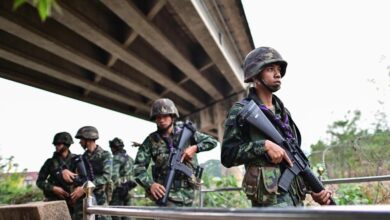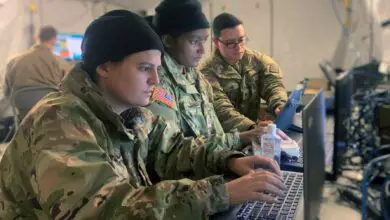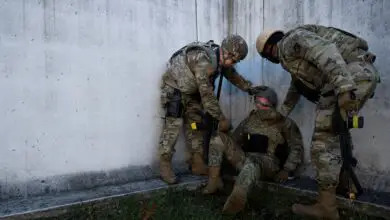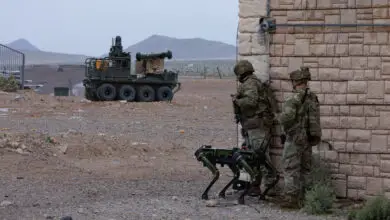
“It is not the critic who counts; not the person who points out how the strong person stumbles, or where the doer of deeds could have done them better, the credit belongs to the individual who is actually in the arena…” — Theodore Roosevelt
It is indisputable that American national security experts and senior military leaders bear sizable responsibility for the conditions in Afghanistan, leading up to and through the quickened troop drawdown in the now-Taliban ruled country.
Overwhelming amounts of comparison between America’s severely misconstrued war efforts in Vietnam from 1964 to 1975 (though the entirety of the Vietnam War stretched from 1955 to 1975) and Afghanistan from 2001 to 2021 have been penned with stark and graphic similarities.
Advised by those experts and leaders, President Joe Biden’s decision to conclude US military involvement further sharpened political differences that the Afghanistan War tended to blur.
Reflecting on the Afghanistan War
Though the reason to invade Afghanistan was based on standards of US stability, patriotism, and nobility, the following events were likely not guarded and measured on these principles.
Consequently, only a limited number of national security leaders are in reserved political appointment positions, but more security leaders should weigh public opinion with stronger consideration before recommitting resources to a conflict.
Had decisions in Afghanistan been made consistent with public sentiment, the political and security purposes of expending resources for so long would have been defeated long before 2021.
To discover — and rediscover — the evaluation standards that guided the US into Afghanistan, relentless reflection on the pitfalls and successes of military action, as well as the weight of public opinion, should take place.
Taliban Victory
While crucial to understanding, mapping out the historical and chronological decisions national security experts and senior military leaders made during the Afghanistan War does not reveal the collective misconstrued logic that clouded some.
What caused America’s longest war cannot be found solely in history but is also rooted in national security experts’ and senior military leaders’ limits in challenging customary practices, which undoubtedly worked in the Taliban’s favor.
The Taliban’s victory over America’s military had its origins in national security experts’ inability to penetrate and restrain the Taliban’s vices and the blanket of security that naturally drew many toward the group. Perhaps that same capacity (or lack thereof) explains security leaders’ lack of strategic adaptability.

Public Opinion
In the US, this war partly achieved a scarring effect on the public’s reverence for public institutions and political leaders.
Public opinion soured, and some release was inevitable. The situation could not last. If it had, would the Pentagon enjoy such a strong reputation and respect for protecting America’s interest from the public it serves? Could the Pentagon further sustain swelling public judgment contrary to its operations in the region?
It is alarming that some national security experts decidedly made the case against America’s force drawdown despite public opinion, further sharpening differences among political decision makers.
On balance, public opinion is usually a reliable supporter of US military operations, but its support for certain (continued) operations should not be taken for granted. The connections indeed stretched and loosened between the accepted public opinion and the Pentagon’s raw power to protract the war, suggesting an eventual divorce from military operations in Afghanistan.
New, Better Principles
Nothing could possibly be more upsetting to some members of Congress, senior military leaders, or national security experts than news of an intentional effort to erase America’s military attachment to Afghanistan.
Whether there was or wasn’t consensus among national security experts at the highest level of government, President Biden’s decision to accelerate the drawdown is an effort to reestablish American security on new, better principles.
However defensible, Biden’s order to leave will likely be met with a gradual congratulatory crescendo over time. He may have been the president to end America’s longest war, but he also contributed to delaying its conclusion. He may have orchestrated the evacuation of tens of thousands of refugees, but in a less than orderly manner.
The only way to rescue this prolonged war built on changeless interpretation in the national security community is to dissect, and knowingly remember that the arguments and principles that kept us there for far too long cannot coexist within the United States.
 Chandler Myers is an active duty Captain in the US Air Force. He has published articles on national security topics that range from education, public- and private-sector partnerships, political philosophy, and foreign policy.
Chandler Myers is an active duty Captain in the US Air Force. He has published articles on national security topics that range from education, public- and private-sector partnerships, political philosophy, and foreign policy.
The views expressed in this article are those of the author and do not necessarily reflect the official policy or position of the Air Force, the Department of Defense, or the US Government.
The views and opinions expressed here are those of the author and do not necessarily reflect the editorial position of The Defense Post.
The Defense Post aims to publish a wide range of high-quality opinion and analysis from a diverse array of people – do you want to send us yours? Click here to submit an op-ed.










